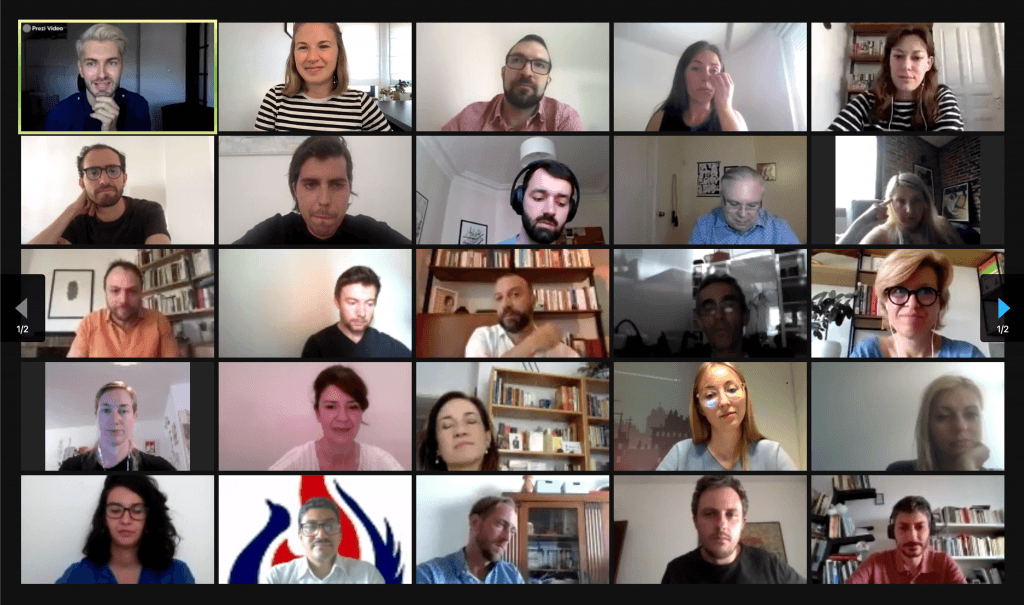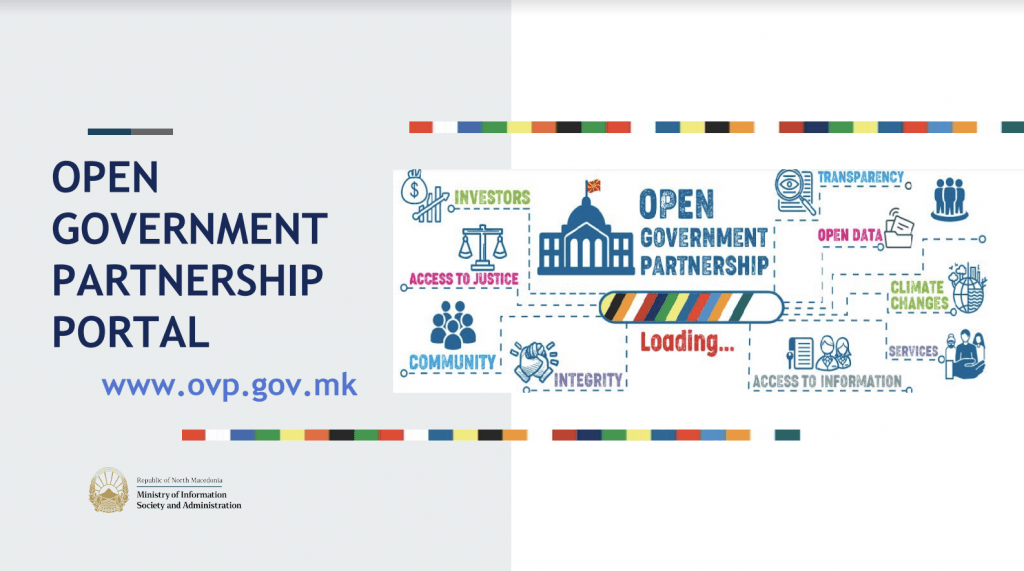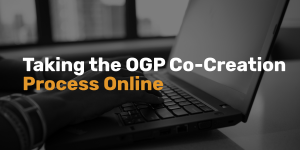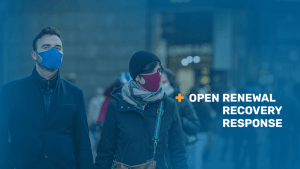Cracking Co-Creation: The Why, the How and the What
Cocreación: Por qué, cómo y qué
Experiences and Ideas from Europe
The Why
Co-creation of policy between government and civil society is the lifeblood of open government. It not only connects the vital organs of our body politic, but ensures its vigorous performance, circulates fresh ideas, and keeps democracy alive and kicking.
Indeed, when government, civil society and citizens identify challenges and design answers together, they respond better to societal needs, create longer-lasting solutions and boost trust in government.
This year, OGP is looking forward to receiving 100 new OGP action plans (including from the new OGP Local members). And, as we mark 10 years since OGP’s founding, making sure the action plans are born out of an inclusive co-creation processCollaboration between government, civil society and other stakeholders (e.g., citizens, academics, private sector) is at the heart of the OGP process. Participating governments must ensure that a dive... and reflect societal needs is as crucial as ever.
The How
So what does a well-designed co-creation process look like?
The OGP Support Unit’s Europe Team organized a series of co-creation webinars over the past few months, precisely to get to the bottom of this question. Below are some lessons and tools to help our community of open government champions:
The first webinar focused on taking co-creation online, providing digital tools for a robust co-creation process, even for times when stakeholders can’t meet face to face. Examples from Spain and the Netherlands showed that going digital can also mean going deeper and broader. Not to mention that digital co-creation can be cheaper; reach participants in farther locations, and make process tracking and reporting easier. Both civil society and government involved in these efforts reported that gathering online allowed for more focused and frequent discussions and reached beyond the “usual suspects”. This resulted in broader stakeholder participation, a wider buy-in from government agencies and overall improvements on co-creation processes from earlier years.

Open gov champions across Europe participated in a civil society brainstorm to discuss reform ideas for upcoming OGP action plans, explore collective advocacy opportunities and share what kind of support they need.PHOTO: Credit: OGP
Still, it is perhaps even more important with digital co-creation events – as much as possible – to use a variety of methodologies that ensure continued engagement and help avoid “Zoom fatigue”. One should also not forget that an exclusively digital co-creation process can’t be fully inclusive due to the “digital divide” – the same way as a fully ‘offline’ event can’t either, as it often leaves out people who live outside capital or major cities, are shy to speak in public, or can’t attend physical meetings. A healthy mix of online and offline events remains the best way to enhance inclusionOGP participating governments are working to create governments that truly serve all people. Commitments in this area may address persons with disabilities, women and girls, lesbian, gay, bisexual, tr... More.
The second session focused on making sure governments respond to inputs solicited from the public – making sure consultations are an exercise in two-way communication and not just box-ticking. We heard great examples from Finland, the Slovak Republic and North Macedonia on how the government provides such so-called “reasoned response”: i.e. publishing an overview of civil society contributions and the reasoning behind their inclusion in (or omission from) the eventual OGP action plan. The Independent Reporting Mechanism of OGP provides further guidance on how to meet this crucial requirement in making a consultation process fully responsive – thereby making sure that whoever participates is listened to, even if not always necessarily agreed with.

Online repositories documenting action planAction plans are at the core of a government’s participation in OGP. They are the product of a co-creation process in which government and civil society jointly develop commitments to open governmen... co-creation and implementation are a requirement as an OGP member.PHOTO: Credit: Ministry of Information Society and Administration, North Macedonia
The third webinar showcased best practices of online repositories, platforms that collect and document all steps related to OGP co-creation and implementation to ensure timely and accessible information is available to all actors interested. Colleagues from Romania, North Macedonia and Portugal shared their OGP platforms for documenting and tracking a successful co-creation process, also required by IRM guidelines.
The What
Having tackled the “how”, we were curious what reform ideas are high on the agenda for upcoming OGP action plans. A civil society brainstorm highlighted not only the key reform asks across the continent, but also the readiness of CSO partners to cooperate across sectors and borders, linking decision-makers with journalists, academia, citizens, and the private sectorGovernments are working to open private sector practices as well — including through beneficial ownership transparency, open contracting, and regulating environmental standards. Technical specificat... More. The top areas of interest that arose from the conversation were:
- Transparency of public procurement: Public spending is already notoriously prone to waste, fraud and corruption, so open procurement and contracting is even more important with vast post-pandemic stimulus budgets, such as the EU’s 600+ billion EUR Recovery and Resilience Facility. A coalition of OGP-partner CSOs recently launched Open Procurement EU, an EU-wide joint effort to open up public procurementTransparency in the procurement process can help combat corruption and waste that plagues a significant portion of public procurement budgets globally. Technical specifications: Commitments that aim t... More.
- Open data and high-value datasets: As countries slowly implement the EU’s Open Data Directive, it is important to make company ownership and procurement data available for free and in a machine-readable format. Learn more about OGP and our partners’ work on beneficial ownership transparency here.
- Interest representation and lobbying: Countries like Germany, France, Spain, Italy, Latvia, Croatia, Estonia, Finland and even the EU itself are working on ensuring a more transparent and inclusive decision-making process. Read this recent blog on where their efforts stand.
- Enhanced citizen engagement: This is the cornerstone of any well-functioning democracy. Improving the overall enabling environment for civil society – namely an open and unencumbered civic space and a free and independent media – and mainstreaming participatory and deliberative frameworks in decision-making are key steps to attain this goal.
As all the energy and ideas coming out of these four webinars attest, champions of open government across public administrations and civil society are busy collaborating and co-creating lasting reforms for an open renewal post-pandemic – answering challenges unprecedented in a generation with determination, innovation and yes, inclusive co-creation. We welcome all to find inspiration in their efforts and join their ranks to collectively build better societies and economies for all.
El por qué
La cocreación de políticas entre el gobierno y la sociedad civil es la esencia del gobierno abierto. Éste no solo conecta los órganos vitales de nuestra política, sino que asegura su desempeño, circula ideas nuevas y mantiene la democracia viva y vibrante.
En efecto, cuando el gobierno, la sociedad civil y la ciudadanía identifican retos y diseñan soluciones en conjunto, están en la posición de responder mejor a las necesidades sociales, crean soluciones más duraderas y fortalecen la confianza en el gobierno.
Este año, OGP recibirá 100 nuevos planes de acción de OGP (incluyendo a los nuevos miembros de OGP Local). Estamos cumpliendo 10 años desde la fundación de OGP y, en ese contexto, será fundamental asegurar que los planes de acción sean creados a partir de procesos incluyentes de cocreación y que reflejen las necesidades sociales.
El cómo
¿Qué implica un proceso de cocreación bien diseñado?
En los últimos meses, el equipo de Europa de la Unidad de Apoyo de OGP organizó una serie de webinars de cocreación, precisamente para llegar al fondo de esa pregunta. A continuación presentamos algunas lecciones y herramientas para ayudar a la comunidad de líderes de gobierno abierto:
El primer webinar se enfocó en cómo llevar el proceso de cocreación a un espacio digital, ofreciendo herramientas para conducir procesos de cocreación robustos, incluso en momentos en donde los actores no pueden reunirse en persona. Los casos de España y los Países Bajos demuestran que los procesos digitales pueden ser más profundos y más amplios, además de tener menos costos. Tanto la sociedad civil como los gobiernos involucrados en estos esfuerzos reportaron que las reuniones virtuales permitieron discusiones más enfocadas y frecuentes y llegaron a personas más allá de los actores comunes. Lo anterior resultó en una mayor participación de actores, mayor aceptación por parte de las instituciones de gobierno y mejoras al proceso de cocreación con respecto a años anteriores.

Líderes de gobierno abierto de todo Europa participaron en una lluvia de ideas entre la sociedad civil para discutir ideas de reformas para los próximos planes de acción de OGP, explorar oportunidades de incidencia colectiva y expresar el tipo de apoyo que requieren.PHOTO: Credit: OGP
Sin embargo, es quizá aún más importante en los eventos digitales de cocreación, tanto como sea posible, utilizar una variedad de metodologías para asegurar que las personas se mantengan interesadas y evitar la “fatiga de Zoom”. Además, no debemos olvidar que los procesos exclusivamente digitales no pueden ser completamente incluyentes debido a la “brecha digital”. Asimismo, los eventos presenciales tampoco pueden serlo pues muchas veces no incluyen a las personas que viven en las capitales y las grandes ciudades, a quienes no les gusta hablar en público o quienes no pueden asistir a reuniones presenciales. La mayor inclusión puede lograrse a través de una combinación de eventos digitales y presenciales.
La segunda sesión se enfocó en asegurar que los gobiernos respondan a los insumos aportados por el público, asegurando que las consultas impliquen comunicaciones mutuas y no sirvan solo para cumplir con el requisito. Conocemos algunos ejemplos excelentes de Finlandia, la República Eslovaca y Macedonia del Norte sobre cómo el gobierno ha dado respuesta justificada, es decir publicar un resumen de las contribuciones de la sociedad civil y una justificación detrás de la inclusión o exclusión de los insumos en el plan de acción de OGP. El Mecanismo de Reporte Independiente de OGP ofrece recomendaciones sobre cómo cumplir con este requisito esencial para hacer que el proceso de consulta sea receptivo, asegurando que todos los participantes sean escuchados aunque no necesariamente se incluyan sus aportes.

Los repositorios digitales documentando la cocreación e implementación de los planes de acción son requisitos para los miembros de OGP. Crédito: Ministerio de la Sociedad de la Información y Administración de Macedonia del Norte.PHOTO: Credit: Ministry of Information Society and Administration, North Macedonia
El tercer webinar mostró buenas prácticas de repositorios virtuales, plataformas que reúnen y documentan todos los pasos del proceso de cocreación e implementación de OGP para asegurar que información puntual esté disponible a todos los interesados. Los coleGas de Rumanía, Macedonia del Norte y Portugal compartieron sus plataformas de OGP para documentar y dar seguimiento a los procesos de cocreación de OGP como lo exigen los lineamientos del IRM.
El qué
Una vez abordado el “cómo”, nos interesa saber qué ideas de reformas están en la agenda de los próximos planes de acción de OGP. En una sesión de lluvia de ideas, se identificaron no solo las propuestas de reformas de todo el continente, sino además la capacidad de las organizaciones de la sociedad civil de cooperar entre diferentes sectores y países, conectando a los tomadores de decisiones con periodistas, academia, ciudadanía y el sector privado. Las áreas más importantes que surgieron en la conversación fueron:
- Transparencia de las adquisiciones públicas: Los gastos públicos son notablemente propensos a los desperdicios, fraude y la corrupción, por lo que las adquisiciones abiertas son aún más importantes en el contexto de los presupuestos de estímulos para responder a la pandemia, como el caso del Fondo de Recuperación y Resiliencia de Europae. Una coalición de OSC socias de OGP recientemente lanzaron la plataforma Open Procurement EU, esfuerzo colaborativo de Europa para abrir las adquisiciones abiertas.
- Datos abiertos y datos de alto valor: Los países están empezando a implementar la Directiva de Datos Abiertos de la Unión Europea. En ese contexto, es importante poner a disposición del público datos sobre la apropiación de las empresas y de las adquisiciones sin costo y en formato legible por máquina. Para saber más sobre OGP y el trabajo de nuestros socios en materia de transparencia en los beneficiarios reales, haz clic aquí.
- Interés, representación y cabildeo: Países como Alemania, Francia, España, Italia, Letonia, Croacia, Estonia, Finlandia e incluso la Unión Europea están trabajando en asegurar un proceso de toma de decisiones más transparente e incluyente. Para saber más sobre estos esfuerzos, consulta este blog.
- Participación ciudadana: La participación es la pieza clave de todas las democracias funcionales. Mejorar el ambiente para la sociedad civil (los espacios cívicos abiertos y los medios libres e independientes) y la transversalización de los procesos de decisión participativos y deliberativos son un paso fundamental para lograr este objetivo.
Como lo demuestra la energía y las ideas que surgieron de estos webinars, los líderes de gobierno abierto de administraciones públicas y la sociedad civil están trabajando arduamente, colaborando y cocreando reformas duraderas para una renovación abierta tras la pandemia y respondiendo a retos sin precedentes en una generación con determinación, innovación y, sí, cocreación incluyente. Esperamos que muchos encuentren inspiración en estos esfuerzos y se unan para crear, de forma colectiva, mejores sociedades y economías para todos.
No comments yet
Related Content

Co-Chair Global Call-to-Action for All OGP Members
In support of Open Renewal, the Co-Chairs of OGP, the Republic of Korea and Maria Baron of Directorio Legislativo, have launched a global call-to-action for all OGP members in 2021…

Taking the OGP Co-Creation Process Online
Find practical tips, a curated list of online tools and platforms, and country examples to help take your OGP co-creation process online.

Open Response + Recovery + Renewal
The pandemic has shown just how easily things can break down. But it also offers the opportunity to build them back up, better and stronger.


Leave a Reply